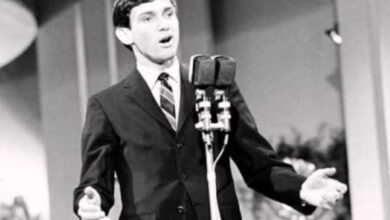“Everyday People”: Sly & The Family Stone’s Timeless Anthem of Unity and Equality
In the vibrant tapestry of 1960s music, few songs encapsulate the era’s spirit of unity and social change as profoundly as Sly & The Family Stone’s “Everyday People.” Released in November 1968, this anthem not only topped charts but also delivered a timeless message of equality and acceptance that continues to resonate today.
At its core, “Everyday People” is a call for harmony among diverse groups. Sly Stone, the band’s charismatic leader, crafted lyrics that emphasized the futility of prejudice. Lines like “I am no better and neither are you” and the iconic refrain “different strokes for different folks” highlighted the absurdity of discrimination based on race, appearance, or social status. The song’s universal appeal lay in its simple yet profound assertion that, despite our differences, we are all “everyday people.”
Musically, the track marked a departure from the band’s earlier, more psychedelic sound. Opting for a mid-tempo groove with a mainstream pop sensibility, “Everyday People” showcased the band’s versatility. The arrangement was both accessible and innovative, featuring harmonious vocals and a catchy melody that invited listeners from all walks of life to join in its celebration of unity.
The success of “Everyday People” was monumental. It became Sly & The Family Stone’s first single to reach number one on both the Billboard Hot 100 and the Soul singles chart, holding the top spot on the Hot 100 for four consecutive weeks in early 1969. This achievement not only cemented the band’s place in music history but also underscored the song’s widespread impact across diverse audiences.
The band’s composition was groundbreaking. Featuring a racially integrated lineup of men and women, Sly & The Family Stone embodied the very message of inclusivity they championed. Members like white musicians Greg Errico and Jerry Martini, alongside female artists Rose Stone and Cynthia Robinson, presented a visual and auditory testament to the power of diversity in music.
Sly Stone, born Sylvester Stewart in 1943, was a musical prodigy from a young age. Before forming The Family Stone, he gained experience as a disc jockey and record producer in San Francisco, honing his skills and developing a keen sense for blending genres. This eclectic background contributed to the unique fusion of soul, rock, and funk that defined the band’s sound.
The release of “Everyday People” was a precursor to the band’s critically acclaimed album, “Stand!” in 1969. The album, which also featured hits like “I Want to Take You Higher” and the title track “Stand!”, was a commercial success, selling over three million copies. Its themes of social justice and empowerment resonated deeply during a time of significant cultural upheaval in America.
The influence of “Everyday People” extended beyond its initial release. The song’s message and musicality inspired numerous artists across genres. Notable covers include renditions by Aretha Franklin, Joan Jett and the Blackhearts, and The Supremes with The Four Tops. Each interpretation brought a unique flavor while honoring the original’s spirit of unity.
In the realm of hip-hop, the song’s legacy continued. In 1992, the group Arrested Development released “People Everyday,” a track that reimagined Sly & The Family Stone’s classic, blending its core message with contemporary narratives. This adaptation introduced the timeless theme to a new generation, highlighting the song’s enduring relevance.
The cultural impact of “Everyday People” is evident in its continued presence in media and advertising. Decades after its release, the song has been featured in various commercials and films, often used to underscore themes of inclusivity and shared humanity. Its catchy melody and uplifting message make it a perennial favorite for campaigns aiming to connect with broad audiences.
Sly & The Family Stone’s performance at the Woodstock Music and Art Festival in 1969 further solidified their place in music history. Their electrifying set, which included “Everyday People,” captivated the massive audience and showcased the band’s dynamic energy and commitment to their message of unity. This performance remains one of the most memorable moments of the iconic festival.
The band’s innovative approach to music and their socially conscious lyrics played a significant role in shaping the landscape of funk and soul music. Their willingness to address issues of race, equality, and love in their songs set them apart from many of their contemporaries and paved the way for future artists to explore similar themes.
Despite facing challenges in the later years, including internal conflicts and personal struggles, the legacy of Sly & The Family Stone, particularly through songs like “Everyday People,” remains influential. Their music continues to be celebrated for its originality, its message, and its ability to bring people together across divides.
In recent years, the enduring significance of Sly & The Family Stone has been revisited in documentaries and retrospectives. These works explore the band’s contributions to music and culture, reaffirming the timeless appeal of their message and the innovative nature of their sound.
Reflecting on “Everyday People” today, its message remains as pertinent as ever. In a world still grappling with issues of division and inequality, the song’s call for understanding and unity serves as a reminder of the shared humanity that binds us all. Its enduring popularity is a testament to the power of music to inspire change and foster connection.
In conclusion, “Everyday People” stands as a landmark in music history. Its blend of catchy melodies, thoughtful lyrics, and a powerful message of inclusivity has ensured its place as a timeless classic. As we continue to navigate complex social landscapes, the song’s enduring appeal offers both a reflection of past struggles and a hopeful vision for the future.
For those who wish to experience the song firsthand, here’s the official video of “Everyday People” by Sly & The Family Stone:



